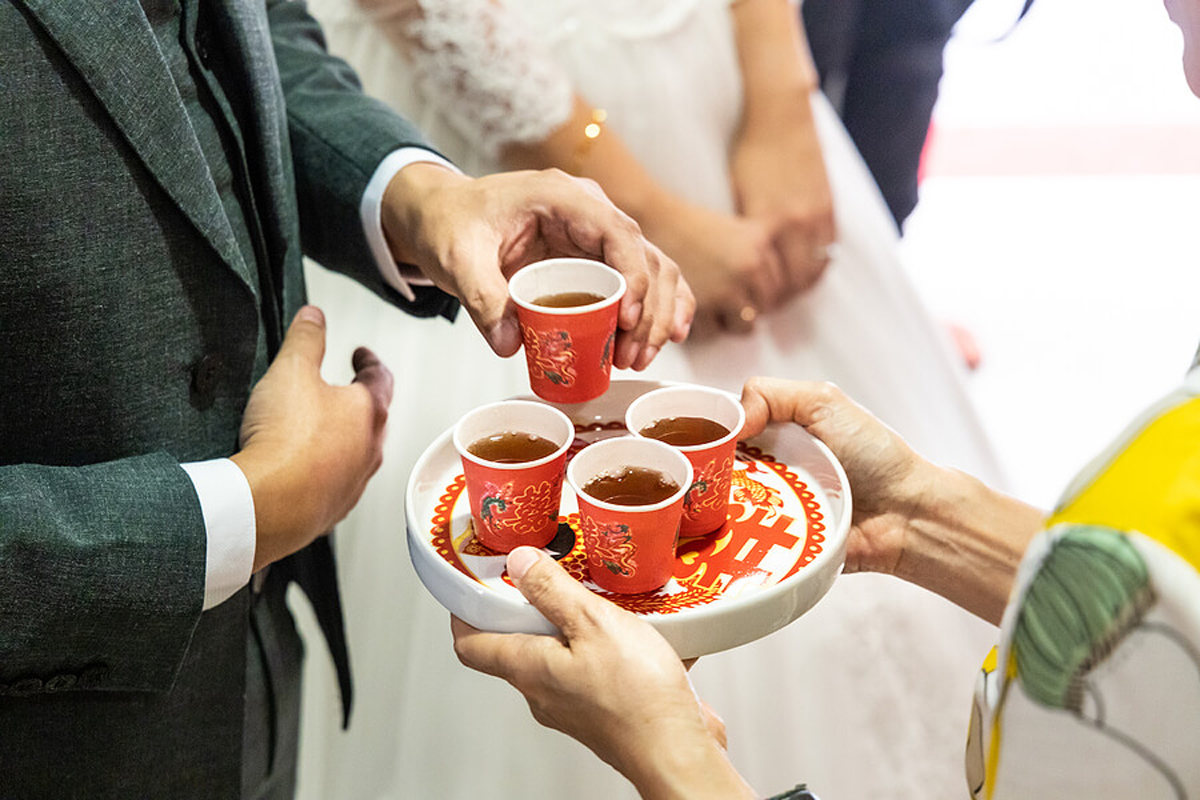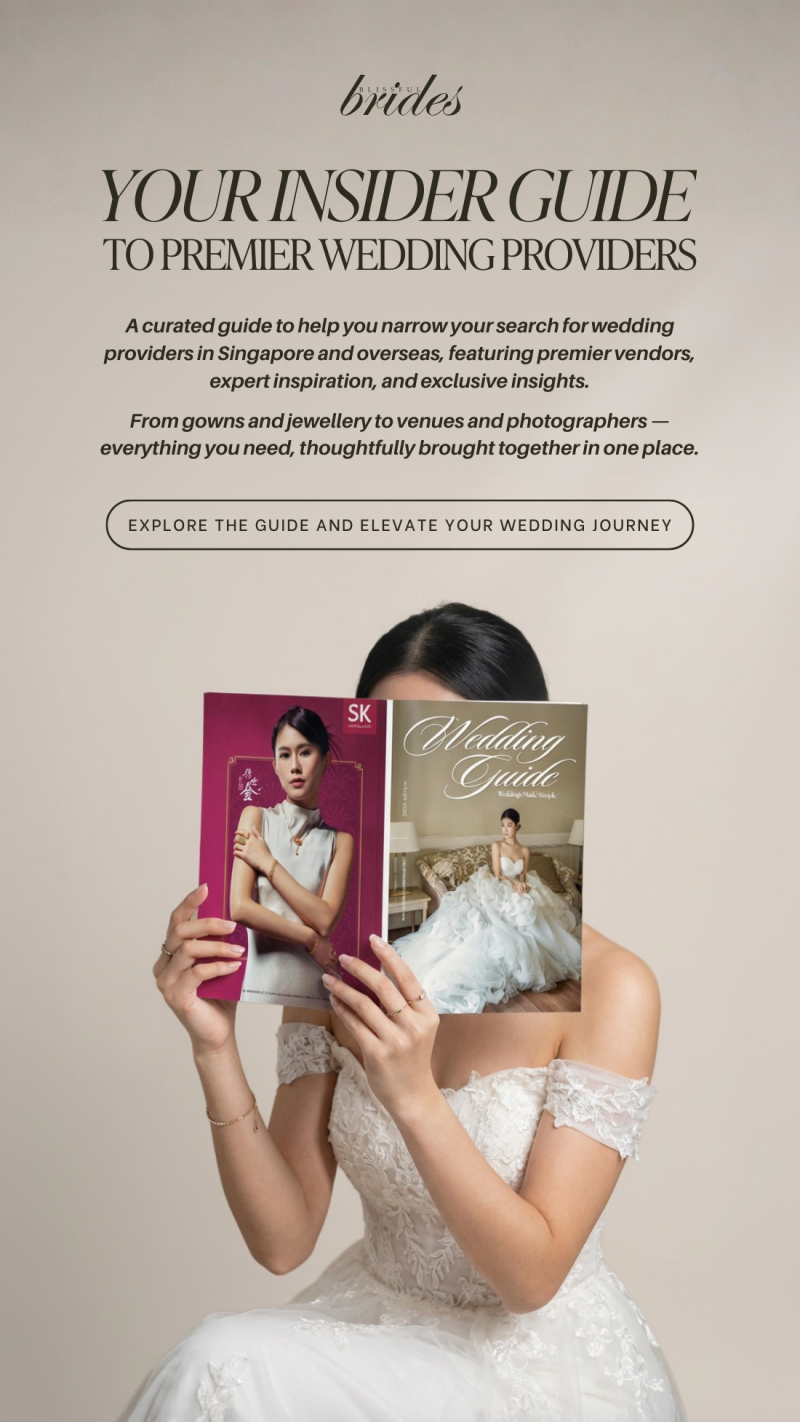Guo Da Li and Jing Cha: How Are These Customs Different?
2023-03-06

At present, most couples adopt a modern approach when it comes to the flow of their wedding by merely incorporating some traditions. Some couples do so for the experience, while others are committed to adopting traditional practices unique to their nationality or dialect group. In Singapore, particularly, many couples still choose to practice some Chinese wedding customs, such as Guo Da Li and Jing Cha.
Indeed, Chinese weddings are known for fusing unique customs and traditions. These customs are imbued with meanings and are usually anchored on traditional Chinese values, such as loyalty, filial piety, kindness, love, and more.
If you’re planning to incorporate some Chinese customs into your upcoming wedding, this article might interest you! Read on to learn more about Guo Da Li and Jing Cha, two of the most important Chinese wedding customs.
What is Guo Da Li?
In Chinese culture, Guo Da Li is considered the official wedding proposal and is the first component of Chinese wedding customs. It is also known as the “betrothal ceremony” because it involves the giving and receiving of betrothal gifts between the families of the bride and the groom.
According to Chinese superstitions, the betrothal ceremony should be conducted on an auspicious day. In modern times, it usually takes place 1 to 2 weeks before the actual wedding day.
What Happens During the Guo Da Li Ceremony?
In a In a Guo Da Li ceremony, it is required for the groom and his family to deliver to the bride and her family a red packet containing the betrothal gift money called the “Pin Jin.” Aside from the Pin Jin, there is also a set of other betrothal gifts that must be given to the bride’s family, including a pair of dragon and phoenix candles, a can of pig trotters, wine or hard liquor, traditional wedding cakes or Xi Bing, jewellery for the bride or Si Dian Jin, and more.
Upon receiving the Pin Jin and other items, the bride and her family shall return a portion (usually half) of the gifts to symbolise that they’re willing to acknowledge the generosity of the groom’s family and to “share the joy” with them. Most of the time, Guo Da Li in Singapore is financed by the couple themselves. However, in some cases, the parents of both the bride and the groom may also share the cost of the wedding banquet.
What is Jing Cha?
Jing Cha, or “tea ceremony”, is the Chinese counterpart to Western solemnisation. It is the formality of introducing the bride and the groom to the relatives of the couple, not just their immediate family. It is traditionally done by having the couple “jing cha” or offer tea to the elder relatives as a way of paying their respects. Because it is the formal introduction of the bride and the groom, Jing Cha is considered one of the most significant events at a Chinese wedding.
What Happens During the Jing Cha Ceremony?
During a usual Jing Cha ceremony, the couple must first serve tea to the groom’s family. They should be dressed in Gua for this occasion. The sweet tea serves as the symbol of the harmonious relationship between the couple and their respective families. It is usually brewed from red dates, lotus seeds, or longans with the tea set from Guo Da Li. Red dates and lotus seeds signify the couple bearing a child early in their marriage, while the longans symbolise a “dragon” wanting to have a male child.
Although the tradition is that the couple arrives at the groom’s house first, some couples may choose to conduct the tea ceremony for the bride before leaving for the groom’s house. In some instances, the couple may even do the ceremony together at the wedding banquet area before the banquet begins. Traditionally, the newlyweds are required to kneel when serving the tea. However, most modern families now only require the newlyweds to bow while standing.
Conclusion
Even though modern adaptations of Chinese wedding customs are becoming increasingly common in Singapore, it’s always a good idea to backtrack and understand better why some customs and traditions are done, and which of them continue to be a significant part of modern Chinese weddings. If you wish to incorporate a bit of tradition into your upcoming wedding, Guo Da Li and Jing Cha are two of the essential Chinese customs you should consider incorporating.
Should you require assistance with carrying out a Guo Da Li ceremony, Blissful Brides is here for you! Blissful Brides is a reputable wedding guide in Singapore that offers an array of excellent complimentary concierges to help you plan successful traditional Chinese ceremonies and weddings without much hassle. Get a quote from us now, so we can start planning and preparing for your auspicious Guo Da Li ceremony or wedding!










